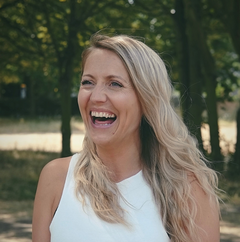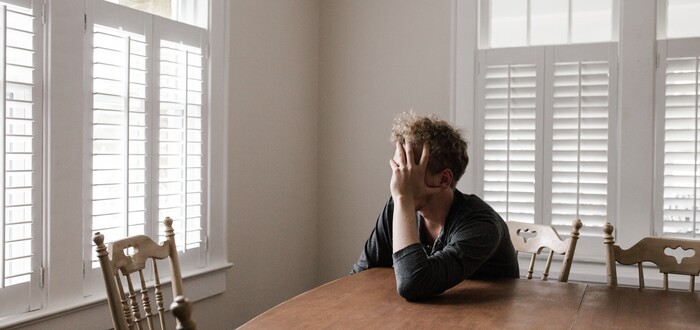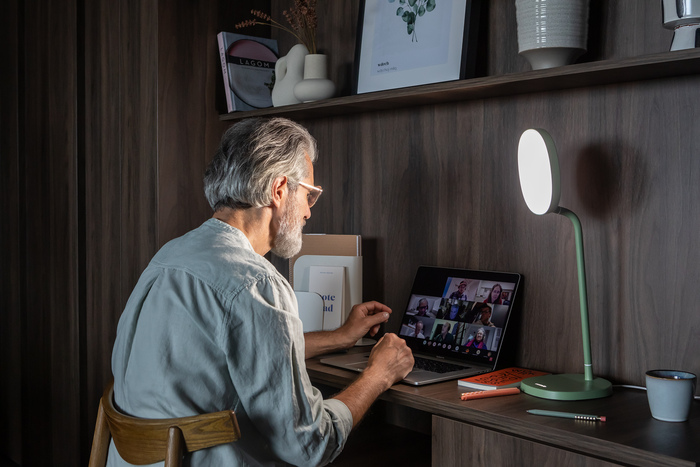Burnout Prevention and Management: Expert Tips for Well-being at Home and Work

You may have heard a lot about ‘burnout’ in recent years. You may have experienced it yourself, or felt you might have had it but never faced it head-on. For some of us, living in a state of burnout is the norm, which often leads to ignoring it, adopting the 'keep calm and carry on' approach. Even if none of this resonates with you directly, we encourage you to take a quiet moment to read on. Kim’s expertise and advice are valuable not just for those currently experiencing burnout, but also for anyone seeking to improve their mental and physical well-being, particularly in the context of busy work schedules.
Burnout is defined as a state of emotional, physical and mental exhaustion, caused by prolonged and excessive stress, and is a very real and scary experience. It occurs when you feel overwhelmed, emotionally drained, and unable to meet constant demands but what's actually happening inside your body? Anytime you feel stressed or anxious your amygdala (the brain’s fear response) has been triggered and your nervous system goes into high alert (also known as the fight and flight response). Your body fills with cortisol (otherwise known as ‘the stress hormone’), adrenalin races through your body, your digestive system slows down, your heart races, muscles tense and your ‘thinking brain’ goes ‘offline’ - your body is primed to fight what it perceives as a threat.
In short doses, being triggered in this way is fine as you quickly come back into the state of rest and relaxation, but when you are being triggered constantly (which is easily done in a stressful/toxic work environment) your body is flooded with too much cortisol which has a damaging effect on your nervous system.
This creates anxiety, which can then lead to severe anxiety or episodes of depression or, ultimately, to a state of burnout, at which point your nervous system reaches the point where it's completely frazzled and your brain can't function properly.
Burnout affects people in different ways, and it can creep up on you very quickly. Learning how to spot the signs early may help you identify if you're starting to burn out. Let’s break it all down a little:
Mental Symptoms
- You might find it really hard to focus
- Feel constantly anxious and on edge
- Struggle to think positively
- Feel overcome with self-doubt
- Like you're on a never-ending hamster wheel that won't stop
- Feel like you're surrounded by a dark cloud that won't go
- Like you're drowning and there is no one to rescue you
- Struggle to have any clear thoughts and even small tasks feel overwhelming
- Like your inner light has been put out
Physical Symptoms
- Feel constantly exhausted no matter how much sleep you get
- Struggle to sleep properly
- Keep getting sick (immune system is lowered)
- Tightness in your chest or throat
- Tight muscles, constant body aches
- IBS, Bloating, Digestive Problems
- Bad skin outbreaks
- Women can lose their periods
- Headaches or migraines
There are many ways to deter or manage burnout. Sometimes a personalised approach is best, often in collaboration with a well-being coach or counsellor, especially in acute cases. Nevertheless, you can take immediate steps to promote rest and relaxation. Here are some universal interventions to get started today:
DON’T look at your phone first thing in the morning, you’ll be flooding it with information that it doesn’t need. Instead, do something that helps you connect to your breath - your superpower. This is where Lumie wake-up lights really come into their own, helping you create a peaceful environment in your bedroom as well as allowing you to kick the habit of keeping your smartphone next to your bed.
MEDITATE every morning to calm your mind and regulate your emotions. The present moment is the best way to reduce anxiety and regularly processing your emotions ensures that things don’t become overwhelming. Listen to this relaxing guided meditation to set your brain up for the day.
SET a clear working day for yourself and be really strict with it. Don't look at your emails outside of working hours!
TAKE BREAKS throughout the day to regulate your breathing. Breathing into your belly is the best way to engage your parasympathetic nervous system (rest and relaxation). This is the opposite of fight and flight.
LIGHTING is essential for your mental health so make sure that you are near as much natural light as possible and use a special bright light therapy such as Lumie Task that simulates natural daylight and reduces eye strain.
RELAX your mind before you go to bed. Don’t look at a screen at least an hour before bed and do something relaxing instead (meditating, journaling, hot bath, listening to music, calming smells…) the brain needs to unwind after a busy day.
WRITE your 'to do' list the night before and never write more than 3 things you absolutely have to get done - everything else will then be a bonus!
REDUCE your intake of the news and social media. The news is inherently negative and social media makes you compare your life to others.
SLEEP is the foundation of your mental health but it's often easily disrupted when you're experiencing burnout. Listen to this sleep meditation as your ‘Lumie sun’ sets gently and gradually, to help calm your busy mind and improve those much-needed ZZZZ's.
TAPPING is a powerful tool for overcoming negative thoughts. Watch this video to see how you can use tapping to process burnout.
Watch Kim walk us through the above tips on Instagram @lumie.lights insert insta link when live, and, for more support, you can follow Happy Heads or email her at kim@happyheads.me - she would love to hear from you.
If you or someone you know is in crisis and requires immediate assistance, please seek help by contacting one of the following helplines in the United Kingdom:
Samaritans: Confidential support for anyone in distress.
Phone: 116 123 (Free 24/7 helpline)
Website: Samaritans
Mind: Provides advice and support for those experiencing mental health issues.
Phone: 0300 123 3393 (Mon-Fri, 9 am-6 pm)
Website: Mind
CALM (Campaign Against Living Miserably): Support for men experiencing feelings of depression or despair.
Phone: 0800 58 58 58 (Daily from 5 pm-midnight)
Website: CALM
Shout: A crisis text service for those who prefer texting over calling.
Text "SHOUT" to 85258 (24/7 support)
Website: Shout
NHS 111: For urgent medical help or advice when it's not a life-threatening situation.
Phone: 111 (24/7 helpline)
Website: NHS 111
Please remember that these helplines are available for immediate assistance during times of crisis. It's essential to reach out to professionals who can provide support and guidance during difficult moments.








